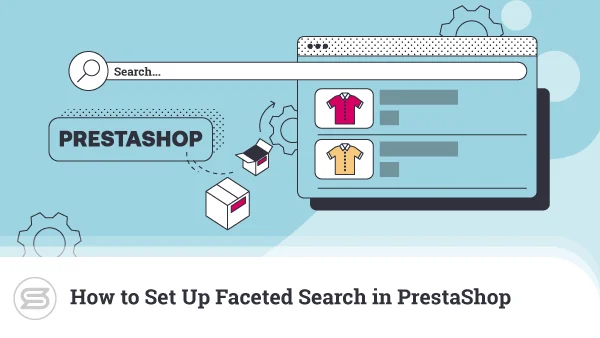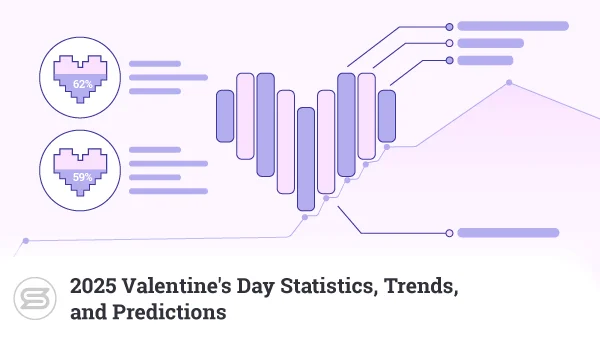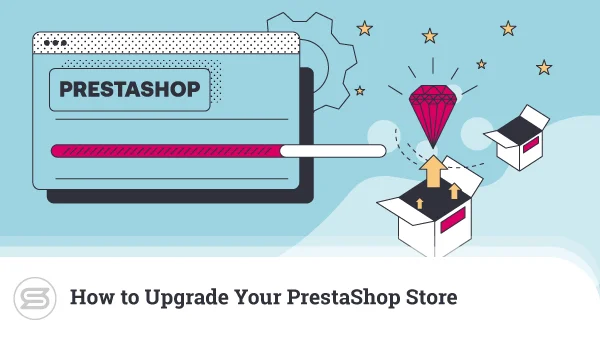What is the Best ERP to Integrate with Prestashop?
Starting an online business nowadays is relatively easy, even without previous experience in the field. All you need is a great idea, and the tools are out there for the taking – various ecommerce site builders, payment vendors, and logistics partners are quite straightforward to find.
Once that business grows, however, you’ve got a ton more things to consider in order to stay competitive. This is the time to seriously consider organizing and optimizing your processes so you can respond to the growing customer demand with as little effort as possible.
So, what can you do?
The answer to many of the established companies is called an Enterprise Resource Planning (ERP) system.
Our mission for today is to introduce the beauty of a well-configured ERP platform to PrestaShop users – what stands behind the term, how can it help your ecommerce project, and what are the best options available for Presta?
Let’s start from the beginning.
What is an ERP System?
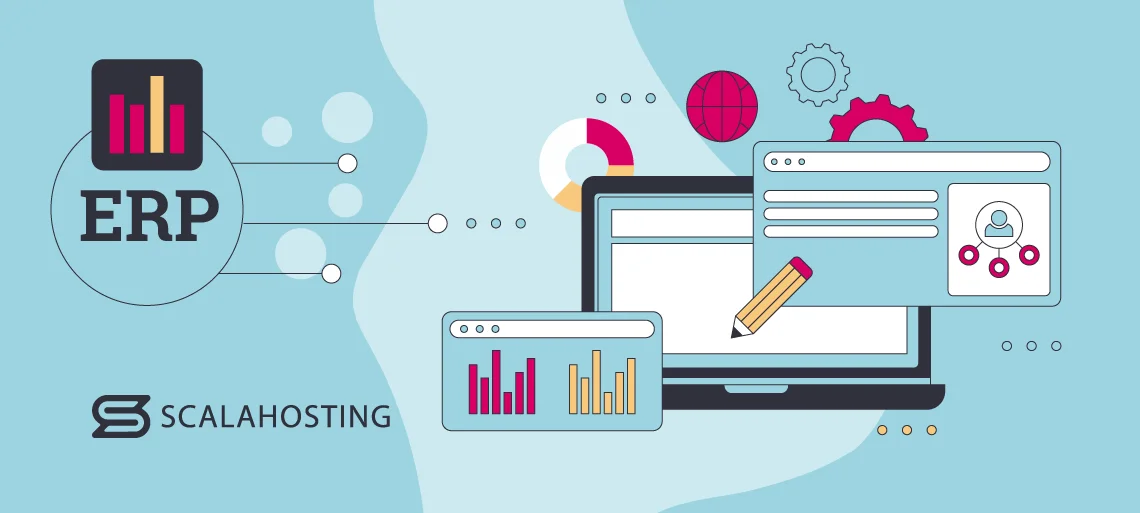
ERP stands for Enterprise Resource Planning and is an indispensable option for growing businesses that deal with a lot of transactions. Such solutions were first introduced in the late 90s and then quickly adopted on a massive scale. The numbers speak for themselves:
- The ERP software market is projected to bring over $108 billion in revenue by the end of 2025.
- The ERP market expanded by 9% last year, with the biggest growth coming from financial management software and human capital management.
- 93% of companies that utilize an ERP system have reported a positive impact.
We can discuss the impressive statistics for days, but the conclusion still remains the same – ERP platforms can significantly optimize the operations of any growing enterprise.
ERPs utilize a relation database model to store data and heavily rely on securing that data. This makes it very similar to Customer Relationship Management (CRM) systems. But there are also distinct differences. While the latter solutions focus primarily on sales, marketing, and customer support analytics, ERP tools take care of back-office functionalities like finances, inventory, and supply chain management.
In short, the ERP is like your business planner – it transforms large chunks of data into comprehensive analytics that help you make informed decisions about your PrestaShop ecommerce project.
Pros and Cons of ERP Systems for Ecommerce Users
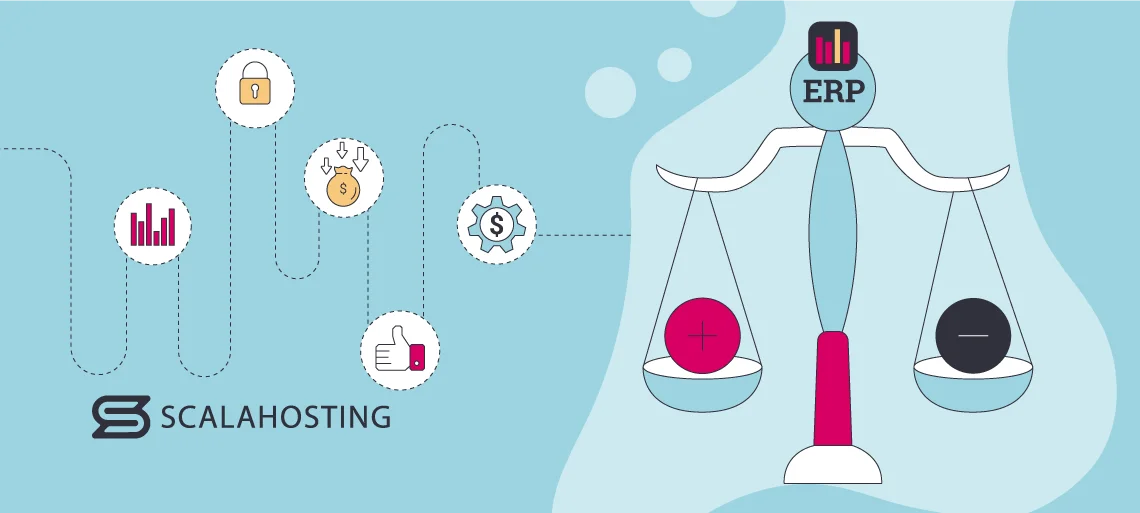
There is no doubt that enterprise resource management can make a real difference if you are looking to build a successful commercial brand. Store owners can enjoy things like:
- Better Business Reporting – ERP solutions compile real-time data, which helps entrepreneurs analyze how each decision affects their operations.
- Optimized Cash Flow – having full control over the financial aspects of your business helps with sales management, invoicing, and billing, allowing you to bring and reinvest your profits more easily.
- Rock-solid Security – ERP software tools deal with very delicate data, so they are inherently well-protected out of the box. PrestaShop store owners can rely on the latest security standards to help them avoid malware and web attacks. Additionally, cloud-distributed solutions will guarantee there is no single point of failure.
- Improved Customer Service – ERP systems gather a ton of valuable customer data. PrestaShop owners can then utilize this information to better understand client behavior, improve response times, and deliver support more efficiently.
- Task Automation – growing enterprises are facing an increasing number of daily tasks. Juggling with multiple operations without the needed workforce can quickly spiral out of control. Still, a well-configured ERP will optimize and automate them to the point where most of the work does not require manual interaction.
As with any software solution, there are some pitfalls you need to watch out for. Some of them include:
- Steeper Learning Curve – PrestaShop and similar ecommerce CMS solutions might be fairly easy for the novice user, but an ERP system takes some time to get used to. There are huge batches of data, and understanding how to analyze them is rather complex for a new user. The same goes for your staff – without the proper training, your employees will find it hard to take full advantage of the gathered information.
- Software Cost – ERP platforms rarely come cheap, and there is a good reason behind that. But the software pricing only gives you half the picture – you have to consider implementation costs, maintenance, and third-party add-ons at the least. This all requires careful budgeting, which is why small startups often leave integrating such solutions to a later stage of their development.
Comparison of ERP systems for PrestaShop
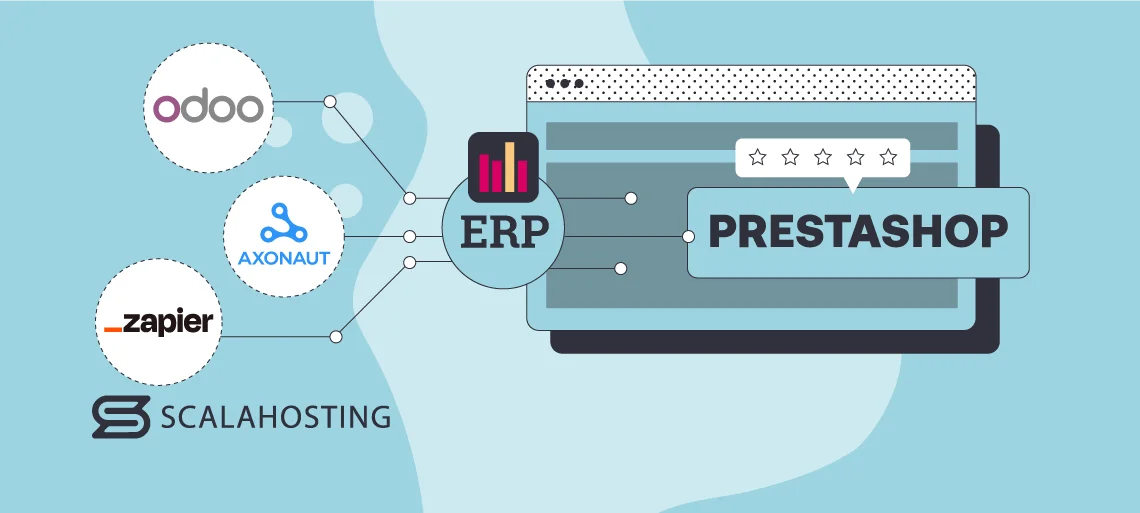
Many popular ERP systems are available for integration with PrestaShop stores. It goes without saying that the ecommerce niche is one of the industries that see the greatest benefits from such solutions.
Odoo
Odoo is the brainchild of Belgian developer Fabian Pinckaers. The suite of applications initially started as an open-source project, later switching to a subscription-based model and a cloud-hosted SaaS software.
The core contains about 30 apps, but the lively community has created thousands more. Before switching to the Odoo name, the solution was called OpenERP, garnering wide international recognition and prestigious awards from Trends Gazelle, Deloitte, and InfoWorld.
Odoo Features
The official Odoo suite is full of wonderful tools, which are neatly separated into different categories based on their main purpose. You can find options for:
- Finance – accounting, invoicing, expenses, etc.
- Human Resources – employees, recruitment, referrals, etc.
- Sales – CRM, subscriptions, rentals, etc.
- Marketing – email marketing, SMM, events, surveys, etc.
- Websites – site builder, ecommerce, blog, live chat, etc.
- Services – timesheets, helpdesk, appointments, etc.
- Inventory & MRP – manufacturing, inventory management, maintenance, etc.
- Productivity – VoIP, IoT, approvals, and more.
Odoo shines with a modern user interface (UI) that contains smart filters for easier navigation. PrestaShop users can automatically receive inbound leads based on their emails, VoIP calls, event attendees, site visitors, or support tickets. This is usually a huge amount of data, which takes a lot of time to analyze.
Mobile users are well taken care of as well. Odoo’s interface works perfectly on all kinds of devices and screen sizes, preventing you from losing vital information due to poor optimization.
Microsoft Dynamics 365
Microsoft Dynamics 365 was first released in 2016, though its roots stem from decades before. This is because the suite comprises products of companies that Microsoft gradually acquired – Great Plains, Navision, Axapta, and more.
Each of the companies initially targeted a different market segment before the technological giant put them all under one roof. The new platform combines tools for enterprise resource planning (ERP) with customer relationship management (CRM) solutions.
Microsoft Dynamics 365 Features
As with many similar ERP systems, Dynamics 365 products come in many different categories based on their purpose and goals. These include:
- Customer data platform
- Sales
- Service
- Marketing
- Commerce
- Supply chain
- Small and medium business
- HR
- Finance
- Project management
In terms of ERP functionalities specifically, the Microsoft suite employs AI to optimize your business operations. This helps PrestaShop store owners build agile manufacturing and supply chain processes that increase visibility and simplify end-to-end services for growing enterprises.
Dynamics 365 is an ERP system with unmatched flexibility. Not only does it integrate easily with various ecommerce systems, but you can also choose which exact functionalities your PrestaShop project will utilize. It’s like a game of building blocks where only your imagination can set the limits.
There is a ton of data that needs to be compiled and analyzed. Microsoft Dynamics 365 takes that burden off your hands and builds a bridge between suppliers, clients, and different teams within your organization. That information is stored in the cloud and can be utilized without any internet connection as there is full offline support.
Axonaut
Axonaut is a French company that has developed a stylish and intuitive set of tools that combine CRM and ERP functionalities. It is a fairly new product, first released in 2017, and one of the most preferred solutions in French-speaking countries.
Even though the company has just a few years of experience under its belt, it now successfully competes with established industry leaders like vTiger, SugarCRM, and Apimo.
Axonaut Features
Established enterprises are not the only customers that can benefit greatly from the Axonaut products. Their line of clients includes startups, digital agencies, accountants, franchises, and service companies. This is also evident by the types of apps you can find on the Axonaut website:
- Billing – personalized quotes, compliant invoicing, automatic debt reminders, electronic signatures, and more.
- Commercial – customer/product categorization, business statistics, appointment reminders, automated email reports, and more.
- Expenses – auto-entry & expense categorization, supplier order and payments, bank reconciliation, and others.
- Accounting – sales & expense logs automation, VAT calculation, custom accounting exports, and reverse charge management.
- Inventory Management – real-time stock value, product traceability (by batch number, serial number, DLC, etc.), product receipts.
- Projects – task breakdowns, project monitoring, timesheets, project indicators (turnover, cost, margin).
- HR – staff registry, pay slip storage, social charges, and leave management.
- Ticketing – automated ticket creation, categorization, answer templates, internal feedback & escalation, etc.
- Marketing – customer segmentation, email & SMS campaigns, personalized templates.
And those solutions are just scratching the surface. There are many more Axonaut tools that elevate PrestaShop stores, but their goal boils down to one simple thing – preventing time-wasting for ecommerce owners so they can concentrate on their core business.
Zapier
Zapier is more than just an ERP system. The platform is one of the most well-known solutions for creating automated business workflows. E-commerce companies face many repetitive tasks on a daily basis, and PrestaShop is no different.
Be it with lead management, marketing campaigns, or customer support – Zapier is there to ensure your store can practically run by itself.
Zapier Features
Listing all of Zapier’s integrations might need a separate article, so we are going to focus on the different aspects of your PrestaShop store where they can come in handy:
- Artificial Intelligence
- Business Intelligence
- Commerce
- Communication
- Content & Files
- Human Resources
- Internet of Things
- IT Operations
- Lifestyle & Entertainment
- Marketing
- Productivity
- Sales & CRM
- Support
- Website & App Building
Apart from this categorization, you can choose to connect your website with products from the most prominent industry giants – Microsoft, Google, Amazon, Facebook, WordPress, and more.
Zapier utilizes a unique way to bridge applications called Zaps. Each Zap works like a trigger for a specific automated action. For example, you want your client to receive a welcome email once they register for an account on your PrestaShop site – that’s a Zap. Want to create a Facebook post every Monday with your weekly promotions? That’s another Zap.
You are not really bound to the predetermined automation from Zapier – they also give you the option to create your own and customize them to best serve your particular goal.
ScalaHosting and PrestaShop – A Smooth Experience with an Eye for Innovation
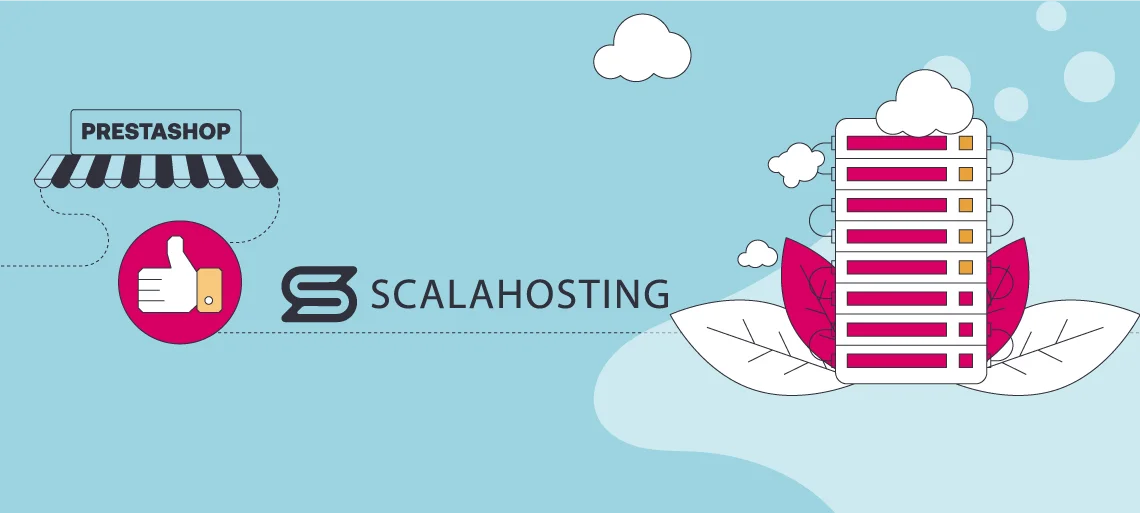
Making the decision to add an ERP system to your PrestaShop site is a fairly easy one. The benefits far outweigh the disadvantages, and learning to utilize such a platform can give you a much-needed competitive edge in a field where every sale matters.
But when you consider the price and resources involved, the choice of web hosting provider becomes more crucial than ever. You need a partner who will not only strain your budget further but also give you the environment and support to make the most of your ERP tools.
ScalaHosting is a very easy choice in that aspect.
Our company has a proven track record in hosting PrestaShop projects, guaranteeing optimized VPS solutions at a reasonable rate. Our virtual servers are not only packed with resources but also come with a ton of free extras to complement your shop performance and security. Those include:
- LiteSpeed / OpenLiteSpeed support
- MySQL support
- Powerful caching
- SSL certificates
- CDN solutions
- Comprehensive remote backup options
- Softaculous one-click installer
This is far from the full package with ScalaHosting. Driven by our desire to elevate the entire web hosting industry, we have developed a few unique tools of our own.
SPanel is your all-in-one server management tool that gives you quick access to operate your domain names, emails, databases, site files, and store branding. Unlike similar solutions like cPanel, SPanel comes with no licensing fees for ScalaHosting customers.
As for the security aspect, you can always rely on SShield. This is an AI-powered monitoring tool that ensures no web attacks or spam messages go through unnoticed. Whenever SShield detects a possible threat – the account administrator immediately gets a notification with a detailed report and possible steps to overcome the danger.
Cyber security and optimal server performance can easily make or break an ecommerce business, but we add another key element to the mix – reliable and timely support. Choosing a managed VPS plan with Scala means you have 24/7 access to industry experts who are well-versed with PrestaShop projects and their specifics. In fact, we encourage you to always contact our support team whenever you are facing difficulties with your web hosting journey – they will gladly lend a helping hand.
No risks are involved when partnering with ScalaHosting – all our plans come with an anytime money-back guarantee, so you can always move away if you feel we are not a perfect match (though we are sure it won’t come to this).
Conclusion
Enterprise Resource Planning represents a suite of various tools that aim to provide detailed analytics to PrestaShop website owners in the quest to optimize their ecommerce growth. This includes almost every aspect of their online shop operations – clients, vendors, inventory, shipping, finances – there is barely anything you cannot do with a well-configured ERP platform.
Even though enterprise resource planning systems are a bit complicated and take some time to get used to, they can save you a lot of time and money in the long term—something every entrepreneur should embrace with open arms.
If you feel that it’s time to consider an ERP – ScalaHosting will be glad to become your trusted partner.
Let’s grow together!
Frequently Asked Questions
Q: How many products can PrestaShop handle?
A: The number of products on any ecommerce solution strongly depends on various factors – shop setup, plugins involved, theme configuration, custom code implementations, and many more. Still, with a basic setup, PrestaShop is proven to handle up to 100,000 products without any visible service interruptions or slowdowns.
Q: What are ERP modules in PrestaShop?
A: Similar to many CMS solutions on the market, PrestaShop relies on add-ons to enhance its functionalities and offer more options for customers. Those add-ons are called modules. PrestaShop integrates easily with a wide variety of modules when it comes to enterprise resource planning. The most notable tools include Odoo, Sage Business Cloud, Webhooks, NetSuite, and Zapier.
Q: Should I choose an ERP or CRM for my PrestaShop store?
A: PrestaShop does not limit you in the number of modules you can add. Knowing that, you are fully free to add both ERP and CRM functionalities, as those often complement each other when it comes to understanding customer behavior and boosting your sales. Still, if you are looking to minimize the number of add-ons on your online store – make sure to choose a module that gathers analytical data for both your front office (sales, marketing) and back office (orders, inventory).
Sources
Enterprise resource planning (ERP) software market revenues worldwide from 2019 to 2026
Market Share Analysis: ERP Software
The 2024 ERP Report

